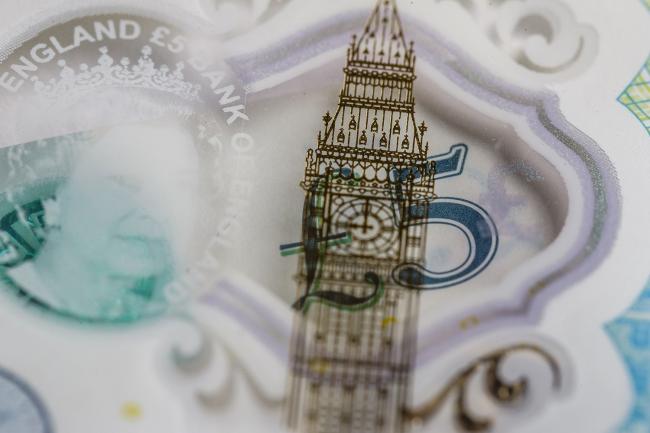(Bloomberg) -- Want the lowdown on European markets? In your inbox before the open, every day. Sign up here.
The pound slipped as polls showed the ruling Conservative party’s lead narrowing into a December election, with the tightening race raising investor fears about an inconclusive result.
The U.K. currency weakened versus all of its Group-of-10 peers as the latest surveys of voting intention showed the opposition Labour party making up some ground following the release of its manifesto last week. The most positive outcome for investors betting the pound will rise is a Conservative win, whereas if no party gains a majority it raises the prospect that an impasse over Brexit will drag on into next year.
The pound has acted as a barometer of political risk throughout the Brexit process and has recovered nearly 8% since hitting an almost three-year low in September, on hopes of an end to the uncertainty. Markets favor a clear win for Conservative leader Boris Johnson, which would make it easier to get his existing Brexit deal through Parliament, allowing the country to move on to trade talks with the European Union.
The currency’s drop “highlights somewhat complacent pricing of political risk in the U.K.,” wrote Adam Cole, chief currency strategist at Royal Bank of Canada, in a research note. “It is hard to reconcile this degree of confidence with current polling results.”
A Kantar poll on Tuesday showed the Conservatives at 43% and Labour at 32%, while an ICM/Reuters poll released Monday put the Conservatives at 41% and Labour at 34%, narrower margins than the double-digit lead of previous surveys in the past 10 days. Pollsters say this election is a tough one with voters prone to switching parties as Brexit disrupts traditional allegiances. Surprise results in the Brexit vote and the last election also mean such surveys are seen as less reliable.
Sterling pared its drop to 0.2% at $1.2879 by 11:55 a.m. in London, after gaining 0.5% Monday. The currency also weakened 0.2% versus the euro to 85.57 pence per euro. U.K. government bonds, which have acted as a haven from Brexit risk, gained to send 10-year yields down four basis points to 0.65%.
Cole sees a risk of a repeat of the 2017 election, where Labour performed much better than initially expected, leading the Conservatives under Theresa May to lose their majority in Parliament. He favors betting on the pound to fall from here, but “that may change multiple times between now and Dec. 12,” he said.
